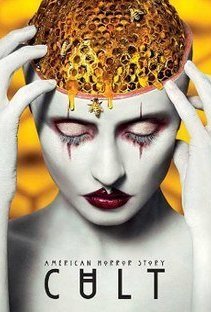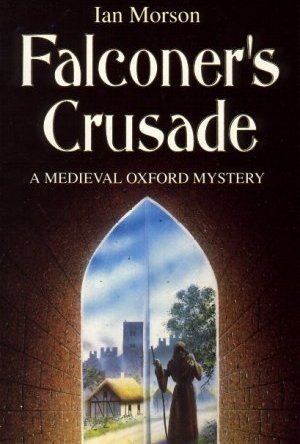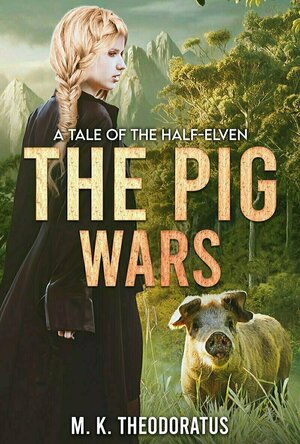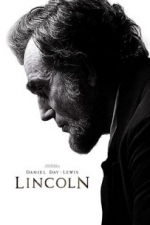Search
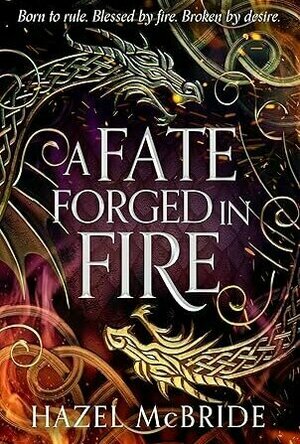
A Fate Forged in Fire (Bonded to Beasts #1)
Book
❤️🔥 BORN TO RULE. BLESSED BY FIRE. BROKEN BY DESIRE... DISCOVER THE NEW ROMANTASY...
Fantasy Romance Dragons Series
LeftSideCut (3776 KP) rated American Horror Story - Season 7 in TV
Mar 8, 2020
Season 7 of American Horror Story, subtitled Cult, is a weird one. Instead of focusing on the supernatural, ghosts, witches, haunted houses, Cult is a trip through the delicacy of the human mind. It instead looks at fears, real world issues, and of course, the presence of an all too familiar cult like family.
This makes for some of the best and worst aspects of AHS Cult. The plot leans heavily into politics this time around, originally airing not long Donald Trump was sworn in. I personally like that this season takes this real world event, and explores the horror that some people experienced during this time. Others would argue that it's very on-the-nose, which is somewhat true. Some of the political leanings carry all the subtlety of a stampeding cattle herd, andnat times can feel heavy handed.
Underneath all of the IRL shit that's going on, we also have a plot of intrigue and mystery, as the main character Ally (Sarah Paulson) is being apparently being stalked and pursued by clowns - her worst fear. We are given reason to believe that perhaps Ally is losing her mind, off her meds, upset with the election result, but as the season continues, you find yourself questioning whether she is in fact being gaslighted. Manipulation of what you believe to be true or false is a terrible horror all on its own, and a big reason why I rate this season highly.
The star of Cult for me though was of course Evan Peters. Playing a deranged political candidate called Kai Anderson, it's not long before his extreme right views Garner him a following, and the titular cult is created. To say anymore would be considered spoilers, but rest assured that all of these plot strands weave together by the time the story climaxes.
Evan Peters role in Cult is my favourite performance if his to date. His character is simultaneously charming, terrifying, smart, and unhinged, and he does a fantastic job in bringing him to life.
The plot also touches upon other real world figures, such as Charles Manson. Those parts were pretty interesting, but when the show flashes back and focuses on Valerie Solanis (Lena Dunham), it lost me a bit. I like when AHS includes real life characters, and it's always fun to see how they are interpreted in this kind of media, but it goes a bit overboard with it's hammy stuff (again) at times - the whole Andy Warhol plot was a massive eye roll in my book - and the Solanis stuff is just plain unenjoyable to watch.
This whole side plot really drags down the quality of cult to me, but the strong performances by Sarah Paulson and Evan Peters is enough to keep it in a higher placing for me.
Certainly not my favourite, and certainly not my least, Cult sits somewhere in the middle, and I can only praise the writers for trying something new with the horror element. Good stuff.
This makes for some of the best and worst aspects of AHS Cult. The plot leans heavily into politics this time around, originally airing not long Donald Trump was sworn in. I personally like that this season takes this real world event, and explores the horror that some people experienced during this time. Others would argue that it's very on-the-nose, which is somewhat true. Some of the political leanings carry all the subtlety of a stampeding cattle herd, andnat times can feel heavy handed.
Underneath all of the IRL shit that's going on, we also have a plot of intrigue and mystery, as the main character Ally (Sarah Paulson) is being apparently being stalked and pursued by clowns - her worst fear. We are given reason to believe that perhaps Ally is losing her mind, off her meds, upset with the election result, but as the season continues, you find yourself questioning whether she is in fact being gaslighted. Manipulation of what you believe to be true or false is a terrible horror all on its own, and a big reason why I rate this season highly.
The star of Cult for me though was of course Evan Peters. Playing a deranged political candidate called Kai Anderson, it's not long before his extreme right views Garner him a following, and the titular cult is created. To say anymore would be considered spoilers, but rest assured that all of these plot strands weave together by the time the story climaxes.
Evan Peters role in Cult is my favourite performance if his to date. His character is simultaneously charming, terrifying, smart, and unhinged, and he does a fantastic job in bringing him to life.
The plot also touches upon other real world figures, such as Charles Manson. Those parts were pretty interesting, but when the show flashes back and focuses on Valerie Solanis (Lena Dunham), it lost me a bit. I like when AHS includes real life characters, and it's always fun to see how they are interpreted in this kind of media, but it goes a bit overboard with it's hammy stuff (again) at times - the whole Andy Warhol plot was a massive eye roll in my book - and the Solanis stuff is just plain unenjoyable to watch.
This whole side plot really drags down the quality of cult to me, but the strong performances by Sarah Paulson and Evan Peters is enough to keep it in a higher placing for me.
Certainly not my favourite, and certainly not my least, Cult sits somewhere in the middle, and I can only praise the writers for trying something new with the horror element. Good stuff.
Sensitivemuse (246 KP) rated Falconer's Crusade in Books
Apr 7, 2018
Great historical aspect, mystery not so much
This is a pretty short mystery to read through. Looks can be deceiving though. Despite being short, it’s packed in with some heavy duty stuff.
The setting for example. Very rich in detail and gives you a sense on how it was back then in William Falconer’s time. Add in some political intrigue, a Jewish Quarter, and some rioting and it gets pretty exciting. I really can’t get over how great the setting is. It’s so descriptive you can feel the darkness and the dampness that permeates throughout the novel. Morson also does an excellent job to stay close to historical accuracy here in this novel as well. Forensic pathology is frowned upon, and you even get to see Falconer try on a strange contraption that looks a lot like Medieval opera glasses at the time. :)
The plot is pretty straight forward although there is not much of a secret mystery element in it. The suspect list is not extensive (thankfully! You’ll see why as you read further into this review) and when revealed it’s not much of a surprise or an a ha! Moment. There isn’t much personality to the characters except Falconer and his student Thomas. Thomas is a particular dolt. A Farmer boy who managed to be gifted and chosen to study and be a Scholar, well, for all the idiotic moves he makes, you have to wonder how the University chose this guy to let him attend their school. He fumbles and stumbles at the worst times and always manages to get himself into some life threatening situations (and doesn’t learn from it). It was funny the first few times, but after a while it gets annoying and you want to slap this boy upside the head. (You don’t deserve Hannah’s attention, you twit).
I’m going to assume it will get better with other books in this series, and this one serves as an introduction to the series. Since I really do love the historical aspect I will stick with this series and see where it takes me. Historical mystery lovers will love the setting and theme of this book, the mystery part, not so much.
The setting for example. Very rich in detail and gives you a sense on how it was back then in William Falconer’s time. Add in some political intrigue, a Jewish Quarter, and some rioting and it gets pretty exciting. I really can’t get over how great the setting is. It’s so descriptive you can feel the darkness and the dampness that permeates throughout the novel. Morson also does an excellent job to stay close to historical accuracy here in this novel as well. Forensic pathology is frowned upon, and you even get to see Falconer try on a strange contraption that looks a lot like Medieval opera glasses at the time. :)
The plot is pretty straight forward although there is not much of a secret mystery element in it. The suspect list is not extensive (thankfully! You’ll see why as you read further into this review) and when revealed it’s not much of a surprise or an a ha! Moment. There isn’t much personality to the characters except Falconer and his student Thomas. Thomas is a particular dolt. A Farmer boy who managed to be gifted and chosen to study and be a Scholar, well, for all the idiotic moves he makes, you have to wonder how the University chose this guy to let him attend their school. He fumbles and stumbles at the worst times and always manages to get himself into some life threatening situations (and doesn’t learn from it). It was funny the first few times, but after a while it gets annoying and you want to slap this boy upside the head. (You don’t deserve Hannah’s attention, you twit).
I’m going to assume it will get better with other books in this series, and this one serves as an introduction to the series. Since I really do love the historical aspect I will stick with this series and see where it takes me. Historical mystery lovers will love the setting and theme of this book, the mystery part, not so much.
Rachel King (13 KP) rated Summers at Castle Auburn in Books
Feb 11, 2019
With all of the series that I constantly fight to keep up with, this was a nice change with an all-in-one plot. The story is told entirely from Coriel Halsing's point of view, so the reader only gets to know things when she learns of them. Sometimes first person P.O.V. is limiting and somewhat claustrophobic, but in this case it simplified the story line and helped me to better get inside the mind of Coriel.
I grew to love Coriel as her story progressed and she matured into a strong, independent young woman. I love that she is not just a pretty face, but possesses both intelligence and wit. In many ways, this book is her coming-of-age story with a fantasy background that could have easily been traded for some other setting without compromising the character of Coriel Halsing.
I also love that Coriel is not the center of royal attention - like her sister, Elisandra - and the "handsome prince" is neither meant for her nor remotely appealing to me, the reader. It was quite entertaining for me to be constantly guessing as to whom Coriel would eventually wind up with. When the man was finally revealed, I was very happy with the results, though I would have enjoyed a bit more wooing on his part.
All of the different characters are well-developed and unique, from the narcissistic handsome prince Bryan, to the always-composed Elisandra, to the many aliora that populate the book. The aliora are quite fascinating, comparable to fairies or elves in description, but still unique to Sharon Shinn's design. In many ways, the aliora act as catalysts for political intrigue within Castle Auburn, as well as Coriel's personal development and maturation.
As an adult fairy-tale, this book can easily appeal to both teens and adults, as the romance is tastefully done and the risque topics, such as slavery, suicide, and illigitimacy, are handled with care and respect. Personally, I loved this book as much as I have loved everything else I have read from Sharon Shinn.
I grew to love Coriel as her story progressed and she matured into a strong, independent young woman. I love that she is not just a pretty face, but possesses both intelligence and wit. In many ways, this book is her coming-of-age story with a fantasy background that could have easily been traded for some other setting without compromising the character of Coriel Halsing.
I also love that Coriel is not the center of royal attention - like her sister, Elisandra - and the "handsome prince" is neither meant for her nor remotely appealing to me, the reader. It was quite entertaining for me to be constantly guessing as to whom Coriel would eventually wind up with. When the man was finally revealed, I was very happy with the results, though I would have enjoyed a bit more wooing on his part.
All of the different characters are well-developed and unique, from the narcissistic handsome prince Bryan, to the always-composed Elisandra, to the many aliora that populate the book. The aliora are quite fascinating, comparable to fairies or elves in description, but still unique to Sharon Shinn's design. In many ways, the aliora act as catalysts for political intrigue within Castle Auburn, as well as Coriel's personal development and maturation.
As an adult fairy-tale, this book can easily appeal to both teens and adults, as the romance is tastefully done and the risque topics, such as slavery, suicide, and illigitimacy, are handled with care and respect. Personally, I loved this book as much as I have loved everything else I have read from Sharon Shinn.
Gareth von Kallenbach (980 KP) rated Jason Bourne (2016) in Movies
Jun 19, 2019
It is hard to believe that 2007 was the last time Matt Damon portrayed Jason Bourne. The series continued with Jeremy Renner playing a character set in the same universe in the 2012 release “The Bourne Legacy”, but fans have longed for more from the series originator.
Thankfully Writer/Director Paul Greengrass has returned with Damon to in the new film “Jason Bourne” The film opens with Bourne in hiding and living off the grid in Greece. He sustains himself by taking part in full contact matches and has regained more of the memories he has forgotten since the events prior to the first film.
His former associate Nicky Parsons (Julia Stiles) has managed to hack into the government and has obtained numerous files about covert operations including a new and greater program as well as information about Bourne and his father.
The leak catches the attention of Director Robert Dewey (Tommy Lee Jones) and he tasks ambitious Agent Heather Lee (Alicia Vikander) to find and stop Bourne and Parsons.
At the same time, Dewey is working with a software developer to ensure that the government has unlimited access to all the users of his software in order to maintain surveillance upon them. Uncomfortable with this arrangement the developer (Aaron Kalloor) threatens to expose what the government has been up to at a big software expo in Las Vegas before a worldwide audience.
With this new threat and Bourne resurfaced, a cold and deadly assassin is dispatched and in locales ranging from Greece, Berlin, London, and Las Vegas as Bourne attempts to get the answers he wants and to settle some old scores with danger all around him.
The film takes a bit to get up to speed but once it does it delivers the action and political intrigue that fans of the series have come to expect. Naturally it does at times require a few leaps of faith but in the end, Bourne is back better than ever and Damon reminds us of how much he owns this character with her performance. Here is hoping we do not have as long a wait for him to return in a new Bourne adventure.
http://sknr.net/2016/07/29/84102/
Thankfully Writer/Director Paul Greengrass has returned with Damon to in the new film “Jason Bourne” The film opens with Bourne in hiding and living off the grid in Greece. He sustains himself by taking part in full contact matches and has regained more of the memories he has forgotten since the events prior to the first film.
His former associate Nicky Parsons (Julia Stiles) has managed to hack into the government and has obtained numerous files about covert operations including a new and greater program as well as information about Bourne and his father.
The leak catches the attention of Director Robert Dewey (Tommy Lee Jones) and he tasks ambitious Agent Heather Lee (Alicia Vikander) to find and stop Bourne and Parsons.
At the same time, Dewey is working with a software developer to ensure that the government has unlimited access to all the users of his software in order to maintain surveillance upon them. Uncomfortable with this arrangement the developer (Aaron Kalloor) threatens to expose what the government has been up to at a big software expo in Las Vegas before a worldwide audience.
With this new threat and Bourne resurfaced, a cold and deadly assassin is dispatched and in locales ranging from Greece, Berlin, London, and Las Vegas as Bourne attempts to get the answers he wants and to settle some old scores with danger all around him.
The film takes a bit to get up to speed but once it does it delivers the action and political intrigue that fans of the series have come to expect. Naturally it does at times require a few leaps of faith but in the end, Bourne is back better than ever and Damon reminds us of how much he owns this character with her performance. Here is hoping we do not have as long a wait for him to return in a new Bourne adventure.
http://sknr.net/2016/07/29/84102/
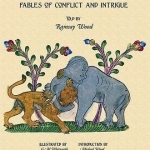
Kalila and Dimna: (From the Panchatantra, Jatakas, Bidpai, Kalilah and Dimnah and Lights of Canopus): v. 2: Fables of Conflict and Intrigue
Michael Wood, Ramsay Wood and Gillian Whitworth
Book
Kalila and Dimna or The Panchatantra (also known in Europe since 1483 as The Fables of Bidpai) is a...
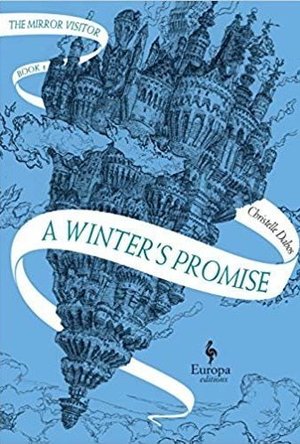
A Winter's Promise
Book
Lose yourself in the fantastic world of the arks and in the company of unforgettable characters in...
IT
Innocent Traitor
Book
I am now a condemned traitor . . . I am to die when I have hardly begun to live. Historical...
Merissa (13749 KP) rated The Pig Wars in Books
Jan 18, 2022
THE PIG WARS is a standalone fantasy set in a world of Elves, Half-Elves, and Humans, although it does feel as though this is a follow-on or spin-off from a previous set of stories. Our main female, Renna, is a Half-Elf and a strong warrior who has hung up her sword after a long and heart-breaking battle. Gorsfeld is human and wants to rule the Marches, either by marrying Renna or taking over her lands. He's not bothered which. Renna has a dodgy leg from birth which is used as the reason she is still alone.
As the title suggests, the whole book is about the two of them fighting over pigs. Renna is supposed to be the smart, strong, and silent type, but she is not quiet in her mind. There is always a monologue going on, usually about how upset she is because someone is riding roughshod over her, even though she makes no attempt to stand up for herself (apart from in her mind.) Gorsfeld has his fair share of monologues too, so I guess that's fair. Renna's character didn't do much for me. In fact, most of them didn't. There is a lot going on and her friends leave a lot to be desired. Because of some of the rants and situations, it makes me question if I have missed another story in this world. I felt as though I had dropped into a world already established where intrigue and political gains had already been explained.
There were some grammatical errors in the story, not enough to disrupt the flow, but enough so you notice. There is a hint of romance at the end, leading you to believe there might be another book in the making. This was a different book that I did enjoy, but I'm not sure I will be continuing if another story does come out.
** same worded review will appear elsewhere **
* A copy of this book was provided to me with no requirements for a review. I voluntarily read this book, and the comments here are my honest opinion. *
Merissa
Archaeolibrarian - I Dig Good Books!
As the title suggests, the whole book is about the two of them fighting over pigs. Renna is supposed to be the smart, strong, and silent type, but she is not quiet in her mind. There is always a monologue going on, usually about how upset she is because someone is riding roughshod over her, even though she makes no attempt to stand up for herself (apart from in her mind.) Gorsfeld has his fair share of monologues too, so I guess that's fair. Renna's character didn't do much for me. In fact, most of them didn't. There is a lot going on and her friends leave a lot to be desired. Because of some of the rants and situations, it makes me question if I have missed another story in this world. I felt as though I had dropped into a world already established where intrigue and political gains had already been explained.
There were some grammatical errors in the story, not enough to disrupt the flow, but enough so you notice. There is a hint of romance at the end, leading you to believe there might be another book in the making. This was a different book that I did enjoy, but I'm not sure I will be continuing if another story does come out.
** same worded review will appear elsewhere **
* A copy of this book was provided to me with no requirements for a review. I voluntarily read this book, and the comments here are my honest opinion. *
Merissa
Archaeolibrarian - I Dig Good Books!
Gareth von Kallenbach (980 KP) rated Lincoln (2012) in Movies
Aug 7, 2019
The history of this country is steeped in mystery and intrigue, but it’s fuzzy on the details. We cling to heroes of the past because we are jaded by the present. Lincoln, a new film from Steven Spielberg, comes to us at a time when there seems to be even more political strife than usual. (Or perhaps that’s just me getting older and actually paying attention.) Either way, I think this movie’s arrival on the silver screen is very timely, given the recent election.
Daniel Day Lewis, a man revered for his choice of films and roles, as well as his ability to portray characters with so much emotion and conviction, has done it once again. As the title character for this film, Lewis portrays one of the U.S.A’s greatest leaders and pioneers in a way that few other men could. Surrounded by some of the best actors in Hollywood (including Tommy Lee Jones), this star-studded film has a laundry list of very recognizable faces from all corners of Hollywood. The red carpet was clearly rolled out for this film.
The story starts amid the death and destruction of the American Civil War, an event that is both a fixed point of the story and a constant backdrop. Seeing the fighting and killing made me wonder how gritty this movie would get, but as it turns out, they kept the level of gore pretty low.
The film goes on to set the stage for the final footsteps into the southern theater that was the Civil War. In tandem, it follows the highly controversial 13th amendment, which was barely passed at the time due to racism and the belief that one color of human should be slave to another color. The absurdity of this notion is highlighted, but it’s also familiar in the way it parallels issues we face today: legalizing pot, gay marriage, prostitution, the right to bear arms, etc. Perhaps our grandchildren will watch a film in the future about these struggles, and regard it as we do a film about the Civil War. As I sat and watched this movie, I was nearly in tears at the thought of how African-Americans were once regarded as lesser beings. Will our grandchildren cry at the ridiculousness of our beliefs?
The cinematography was amazingly crisp. Many of the characters are introduced in such a way that they have a grand entrance through the mystique created by camera angles. I have to truly applaud Spielberg for what might be his best film yet. The camera work was immensely effective, relying heavily on the contrast between shadow and light. Coupled with richly detailed sets, it made everything staggeringly realistic, and absolutely convincing.
I will say this for Lincoln: I haven’t been so moved and taken aback by a period film in my life. This is a must see for everyone.
The dialog is highly political, and sometimes goes along at quite a clip; be prepared to miss a few things the first time around. However, watching it a second time surely won’t be a sin. The humor alone merits a second viewing. There are many good laughs to be had.
Lincoln is a work of art.
Daniel Day Lewis, a man revered for his choice of films and roles, as well as his ability to portray characters with so much emotion and conviction, has done it once again. As the title character for this film, Lewis portrays one of the U.S.A’s greatest leaders and pioneers in a way that few other men could. Surrounded by some of the best actors in Hollywood (including Tommy Lee Jones), this star-studded film has a laundry list of very recognizable faces from all corners of Hollywood. The red carpet was clearly rolled out for this film.
The story starts amid the death and destruction of the American Civil War, an event that is both a fixed point of the story and a constant backdrop. Seeing the fighting and killing made me wonder how gritty this movie would get, but as it turns out, they kept the level of gore pretty low.
The film goes on to set the stage for the final footsteps into the southern theater that was the Civil War. In tandem, it follows the highly controversial 13th amendment, which was barely passed at the time due to racism and the belief that one color of human should be slave to another color. The absurdity of this notion is highlighted, but it’s also familiar in the way it parallels issues we face today: legalizing pot, gay marriage, prostitution, the right to bear arms, etc. Perhaps our grandchildren will watch a film in the future about these struggles, and regard it as we do a film about the Civil War. As I sat and watched this movie, I was nearly in tears at the thought of how African-Americans were once regarded as lesser beings. Will our grandchildren cry at the ridiculousness of our beliefs?
The cinematography was amazingly crisp. Many of the characters are introduced in such a way that they have a grand entrance through the mystique created by camera angles. I have to truly applaud Spielberg for what might be his best film yet. The camera work was immensely effective, relying heavily on the contrast between shadow and light. Coupled with richly detailed sets, it made everything staggeringly realistic, and absolutely convincing.
I will say this for Lincoln: I haven’t been so moved and taken aback by a period film in my life. This is a must see for everyone.
The dialog is highly political, and sometimes goes along at quite a clip; be prepared to miss a few things the first time around. However, watching it a second time surely won’t be a sin. The humor alone merits a second viewing. There are many good laughs to be had.
Lincoln is a work of art.
